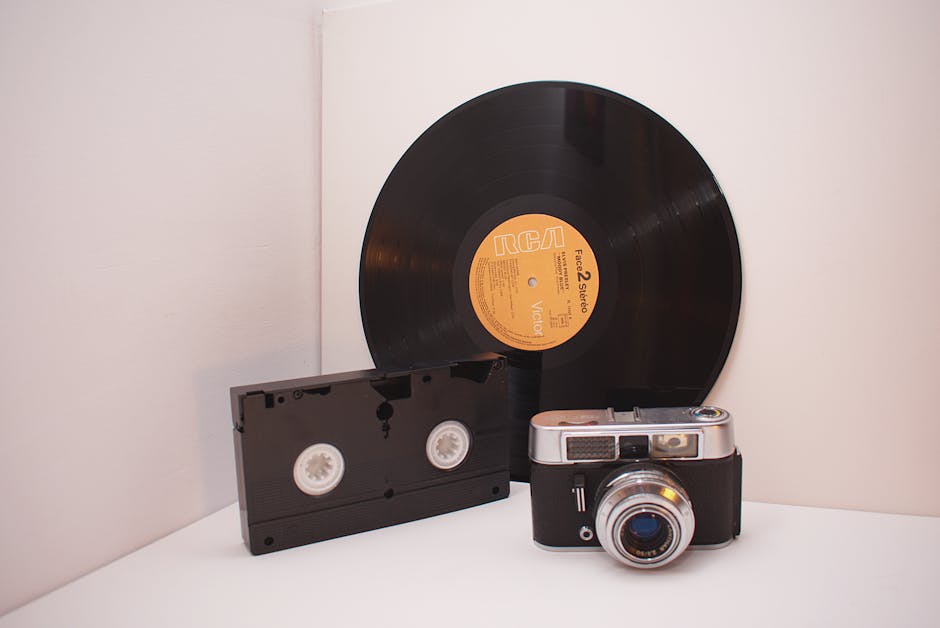Licensing Your Music for TV, Film, and Commercials: A Step-by-Step Guide

So, you've got some amazing music, and now you want to get it in front of more ears. Licensing your tracks for TV, films, and commercials is one of the most exciting (and potentially lucrative) ways to do just that. The idea of hearing your song in a movie or playing during a national ad campaign is thrilling. But how do you actually get there? The process can be a bit complex, but it's very doable once you understand the steps. Let’s break it down in a way that makes sense.
Step 1: Understand What Music Licensing Really Means
Before we dive into the nitty-gritty, let’s make sure we're on the same page about what licensing is. When you "license" your music, you're essentially granting permission for someone to use it. In exchange, you get paid, either through an upfront fee, royalties, or both. Think of it like renting out your music, you still own it, but someone else gets to use it for a specific purpose and period of time.
The terms can vary widely depending on how your music is used. For instance:
- Sync License: This is the most common type when it comes to TV, films, and commercials. It allows the user (like a production company) to synchronize your music with visual content.
- Master Use License: This gives the right to use the actual recording of your song in a piece of media.
- Mechanical License: While not often needed for TV and film, this applies when someone wants to cover or reproduce your song.
Got all that? Cool! Now let’s move on to how you get your foot in the door.
Step 2: Make Sure Your Music Is License-Ready
Before pitching your songs to anyone, you need to ensure they’re ready for licensing. This means having all necessary rights squared away. If you’ve collaborated with others (like co-writers or producers) they must agree to license their share as well. And if you’ve used any samples from other songs? You’ll need clearance for those too.
One real-world example: Pharrell Williams had to fork out $7 million because he didn’t clear parts of Marvin Gaye’s “Got To Give It Up” when creating Robin Thicke’s hit “Blurred Lines.” Legal complications like these can be costly and damage your reputation.
To keep things simple, here’s what you need:
- Clear ownership rights (either 100% or shared with collaborators who agree to license)
- No uncleared samples
- High-quality recordings (production value matters!)
Step 3: Build Relationships With Music Supervisors and Licensing Agencies
If you want your song in a movie or commercial, you'll need the help of music supervisors or licensing agencies. These people are the gatekeepers between musicians and media companies. Music supervisors work directly with filmmakers or ad agencies and are responsible for selecting songs that match their projects’ needs.
You can approach them in two main ways:
- Directly pitch your music: You can reach out directly if you know a music supervisor who's looking for new material. When doing this, be concise and professional. Don't send full albums, choose a few tracks that fit their current projects.
- Work with a licensing agency: These agencies act as middlemen, connecting artists with media companies. They already have established relationships with supervisors, so they might take some of the heavy lifting off your shoulders. In exchange, they usually take a cut (anywhere from 20% to 50%) of any deal they secure for you.
An example here would be companies like Musicbed, which offer high-quality songs for licensing specifically geared toward filmmakers and brands.
Step 4: Tailor Your Pitches and Be Persistent!
Poorly targeted pitches are one way to shoot yourself in the foot early on. A folk ballad might not work for a fast-paced car commercial just as much as EDM won’t fit an emotional scene in an indie drama, unless it's ironic or intentional! Tailoring your pitches means doing some homework beforehand.
- Research projects that align with your style: If you're into moody instrumentals, look at indie films or introspective TV dramas. Got upbeat pop tunes? Commercials are always in need of catchy hooks to sell products.
- Create multiple versions of your track: Some productions may want only instrumental versions without lyrics so they don’t distract from dialogue or voiceovers.
A good example: Imagine Hans Zimmer pitching his grand orchestral pieces only to action blockbusters, not rom-coms or sitcoms! That level of self-awareness will help you avoid wasted effort and increase your chances of landing placements.
Persistence also plays a big role here. Just because one pitch doesn’t land doesn’t mean you're done for good. Many musicians send dozens (if not hundreds) of pitches before locking down a deal.
Step 5: Know What You’re Worth, Negotiating Fees and Royalties
The money side is always important but often misunderstood by new artists getting into licensing. Depending on how popular or experienced you are (or how much budget the production has) your payout could vary quite a bit.
| Type of Usage | Typical Fee Range | Additional Notes |
|---|---|---|
| TV Show Placement (Network) | $1,000 – $10,000+ | Larger networks pay more; smaller ones often lower-end fees. |
| Film Score/Sync (Independent) | $500 – $2,500+ | Bigger films with larger budgets pay more; indie projects may pay less but offer great exposure. |
| Commercial Ad Placement (National) | $5,000 – $100,000+ | The sky's the limit based on brand size and campaign reach. |
| YouTube/Web Series Syncs | $50 – $500+ | Lesser-known productions might offer lower fees upfront but good long-term exposure. |
A key factor in negotiations is whether you're being offered an upfront flat fee or royalties based on performance (like how often a commercial airs). Sometimes both apply, especially if you're dealing with larger networks or big ad campaigns. Be mindful that music supervisors will usually have tight budgets to work within, so knowing what’s reasonable helps maintain good relationships while still getting paid what you're worth.
Keep Your Expectations Realistic Yet Ambitious
The world of music licensing can open up incredible opportunities, but it’s not something that happens overnight. Like anything worthwhile in life, it takes time and perseverance. Whether you're pitching directly to supervisors or working through an agency, persistence mixed with professionalism goes a long way. The best way forward? Stay authentic to your sound while being open to feedback from industry professionals and don’t get discouraged by rejections along the way!
